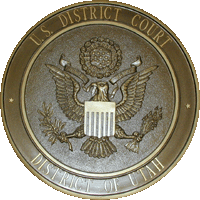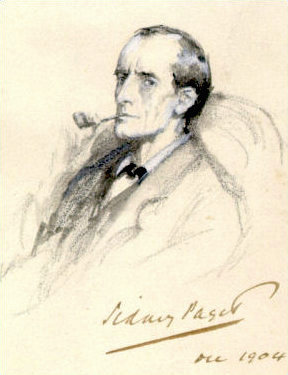Kazaa Media Desktop was a peer-to-peer file sharing application using the FastTrack protocol licensed by Joltid Ltd. and operated as Kazaa by Sharman Networks. Kazaa was subsequently under license as a legal music subscription service by Atrinsic, Inc., which lasted until August 2012. According to one of its creators, Jaan Tallinn, Kazaa is pronounced "ka-ZAH".
A royalty payment is a payment made by one party to another that owns a particular asset, for the right to ongoing use of that asset. Royalties are typically agreed upon as a percentage of gross or net revenues derived from the use of an asset or a fixed price per unit sold of an item of such, but there are also other modes and metrics of compensation. A royalty interest is the right to collect a stream of future royalty payments.
The first-sale doctrine is an American legal concept that limits the rights of an intellectual property owner to control resale of products embodying its intellectual property. The doctrine enables the distribution chain of copyrighted products, library lending, giving, video rentals and secondary markets for copyrighted works. In trademark law, this same doctrine enables reselling of trademarked products after the trademark holder puts the products on the market. In the case of patented products, the doctrine allows resale of patented products without any control from the patent holder. The first sale doctrine does not apply to patented processes, which are instead governed by the patent exhaustion doctrine.
Copyright misuse is an equitable defence to copyright infringement in the United States based upon the doctrine of unclean hands. The misuse doctrine provides that the copyright holder engaged in abusive or improper conduct in exploiting or enforcing the copyright will be precluded from enforcing his rights against the infringer. Copyright misuse is often comparable to and draws from the older and more established doctrine of patent misuse, which bars a patentee from obtaining relief for infringement when he extends his patent rights beyond the limited monopoly conferred by the law.

SCO v. Novell was a United States lawsuit in which the software company The SCO Group (SCO), claimed ownership of the source code for the Unix operating system. SCO sought to have the court declare that SCO owned the rights to the Unix code, including the copyrights, and that Novell had committed slander of title by asserting a rival claim to ownership of the Unix copyrights. Separately, SCO was attempting to collect license fees from Linux end-users for Unix code through their SCOsource division, and Novell's rival ownership claim was a direct challenge to this initiative. Novell had been increasing their investments in and support of Linux at this time, and was opposed to SCO's attempts to collect license fees from Novell's potential customers.

A&M Records, Inc. v. Napster, Inc., 239 F.3d 1004 was a landmark intellectual property case in which the United States Court of Appeals for the Ninth Circuit affirmed the a district court ruling that the defendant, peer-to-peer file sharing service Napster, could be held liable for contributory infringement and vicarious infringement of copyright. This was the first major case to address the application of copyright laws to peer-to-peer file sharing.

Specht v. Netscape, 306 F.3d 17, is a ruling at the United States Court of Appeals for the Second Circuit regarding the enforceability of clickwrap software licenses under contract law. The court held that merely clicking on a download button does not show assent to license terms, if those terms were not conspicuous and if it was not explicit to the consumer that clicking meant agreeing to the license.
Peevyhouse v. Garland Coal & Mining Co., 382 P.2d 109, is a US contract law case decided by the Supreme Court of Oklahoma. It concerns the question of when specific performance of a contractual obligation will be granted and the measure of expectation damages.
Capitol Records, Inc. v. Thomas-Rasset was the first file-sharing copyright infringement lawsuit in the United States brought by major record labels to be tried before a jury. The defendant, Jammie Thomas-Rasset, was found liable to the plaintiff record company for making 24 songs available to the public for free on the Kazaa file sharing service and ordered to pay $220,000.

Jacobsen v. Katzer was a lawsuit between Robert Jacobsen (plaintiff) and Matthew Katzer (defendant), filed March 13, 2006 in the United States District Court for the Northern District of California. The case addressed claims on copyright, patent invalidity, cybersquatting, and Digital Millennium Copyright Act issues arising from Jacobsen under an open source license developing control software for model trains.
Browsewrap is a term used in Internet law to refer to a contract or license agreement covering access to or use of materials on a web site or downloadable product. In a browse-wrap agreement, the terms and conditions of use for a website or other downloadable product are posted on the website, typically as a hyperlink at the bottom of the screen. Unlike a clickwrap agreement, where the user must manifest assent to the terms and conditions by clicking on an "I agree" box, a browse-wrap agreement does not require this type of express manifestation of assent. Rather, a web-site user purportedly gives their consent simply by using the product — such as by entering the website or downloading software.
Quanta Computer, Inc. v. LG Electronics, Inc., 553 U.S. 617 (2008), is a case decided by the United States Supreme Court in which the Court reaffirmed the validity of the patent exhaustion doctrine. The decision made uncertain the continuing precedential value of a line of decisions in the Federal Circuit that had sought to limit Supreme Court exhaustion doctrine decisions to their facts and to require a so-called "rule of reason" analysis of all post-sale restrictions other than tie-ins and price fixes. In the course of restating the patent exhaustion doctrine, the Court held that it is triggered by, among other things, an authorized sale of a component when the only reasonable and intended use of the component is to engage the patent and the component substantially embodies the patented invention by embodying its essential features. The Court also overturned, in passing, that the exhaustion doctrine was limited to product claims and did not apply to method claims.

Microsoft Corp. v. DAK Indus., Inc. 66 F.3d 1091 is a court case in which Microsoft contended that in being licensed rights to sell Microsoft Word (Word) software, the then-bankrupt DAK Industries had been granted permission to use this intellectual property, so Microsoft was entitled to receive payments during post-bankruptcy in the form of royalties.

Capitol Records, LLC v. ReDigi Inc., 934 F. Supp. 2d 640 , is a case from the United States District Court for the Southern District of New York concerning copyright infringement of digital music. In ReDigi, record label Capitol Records claimed copyright infringement against ReDigi, a service that allows resale of digital music tracks originally purchased from the iTunes Store. Capitol Records' motion for a preliminary injunction against ReDigi was denied, and oral arguments were given on October 5, 2012.

Columbia Pictures Industries, Inc. v. Redd Horne, Inc., 749 F.2d 154 was a copyright infringement case of the United States Court of Appeals for the Third Circuit over the playing video cassettes in-store of a video sale and rental store. The appeals court affirmed the decision of the district court to grant the plaintiffs' motion for summary judgment and enjoin defendants from exhibiting plaintiffs' copyrighted motion pictures.
Fox Broadcasting Co. v. Dish Network, LLC is a copyright case in which the United States District Court for the Central District of California, by granting partial summary judgment, denied most parts of the copyright claims presented by Fox Broadcasting Company (Fox) against Dish Network (Dish) for its service, a DVR-like device that allowed users to record programming that could be accessed later through any Internet-connected device. The service offered by Dish also allowed users to record any or all Fox's prime-time programs and to automatically skips commercials (AutoHop).
Morton Salt Co. v. G.S. Suppiger Co., 314 U.S. 488 (1942), is a patent misuse decision of the United States Supreme Court. It was the first case in which the Court expressly labeled as "misuse" the Motion Picture Patent/Carbice tie-in defense to a charge of patent infringement and created the present blanket remedy in infringement cases of unenforceability of the misused patent. The decision re-emphasized that misuse can be found without finding an antitrust violation.
In the early 1930s, Jerry Siegel and Joe Shuster developed the fictional comic book character of Superman. In 1938, they sold the character to Detective Comics, Inc.. After Superman became an unexpected success, the pair attempted to recover the rights to the character. This began a long chain of legal battles over ownership, royalties, and credit that would continue after their deaths.

Klinger v. Conan Doyle Estate, Ltd. was a 2014 decision by the U.S. Court of Appeals for the Seventh Circuit, in response to an appeal filed by the defendants against the 2013 ruling of the U.S. District Court for Northern district of Illinois. These decisions, by the District Court and the Court of the Seventh Circuit, clarified the validity of use of characters of Sherlock Holmes and his colleague Dr. John Watson, and the story elements, in unlicensed works. Further, the scope of using characters, existing in public domain, was also clarified.
Bagdasarian Productions is an American production company founded by Ross Bagdasarian Sr. on February 20, 1961. The company holds the rights to Alvin and the Chipmunks and related intellectual property assets. The company is currently owned and operated in by Ross Bagdasarian Jr. and Janice Karman. The company has co-produced many television series, specials, and films and initiated multiple lawsuits to protect the characters.







